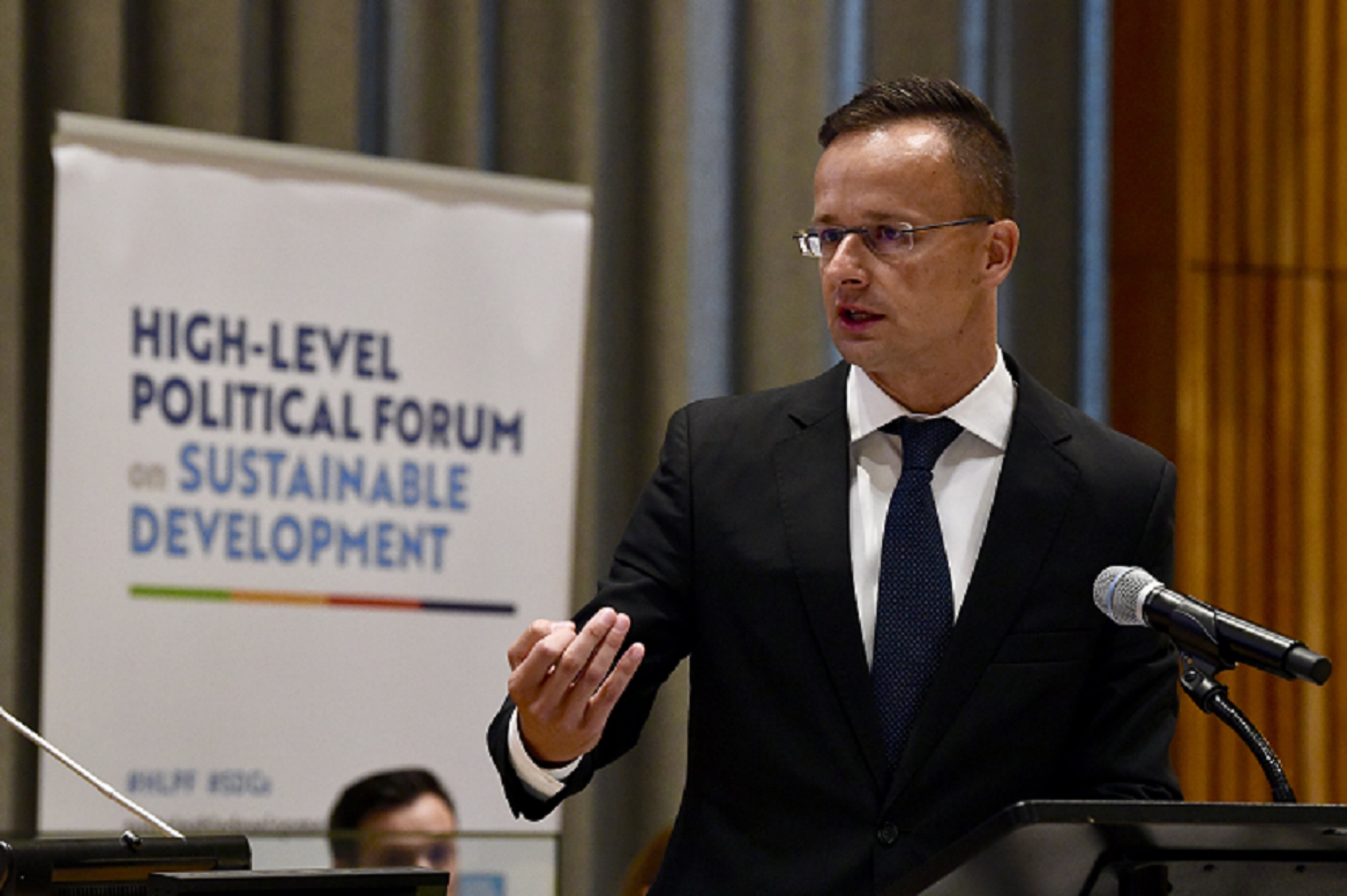H.E. Mr. Péter Szijjártó, Minister of Foreign Affairs and Trade of Hungary participated in the High-Level Segment’s General Debate of the annual High-Level Political Forum (HLPF) under the auspices of the Economic and Social Council (ECOSOC) on 17 July. Minister Szijjártó also held bilateral meetings with H.E. Mr. Muhammad Abdul Mannan, Minister of Planning of the People’s Republic of Bangladesh, H.E. Rodrigo Malmierca Díaz, Minister of Foreign Affairs and Foreign Investments of the Republic of Cuba as well as H.E. Ms. Olga Algayerova, Executive Secretary of the United Nations Economic Commission for Europe (UNECE).
H.E. Mr. Péter Szijjártó, Minister of Foreign Affairs and Trade of Hungary participated in the High-Level Segment’s General Debate of the annual High-Level Political Forum (HLPF) under the auspices of the Economic and Social Council (ECOSOC) on 17 July. Minister Szijjártó also held bilateral meetings with H.E. Mr. Muhammad Abdul Mannan, Minister of Planning of the People’s Republic of Bangladesh, H.E. Rodrigo Malmierca Díaz, Minister of Foreign Affairs and Foreign Investments of the Republic of Cuba as well as H.E. Ms. Olga Algayerova, Executive Secretary of the United Nations Economic Commission for Europe (UNECE).

During the General Debate of the HLPF the Minister highlighted the importance of the sustainable development goals (SDGs) in terms of the Hungarian economic growth, especially focusing on the significance of the SDG4, SDG8 and SDG10, representing respectively quality education, decent work and reducing inequalities in the country. During the first quarter of the year, Hungary had the no. 1 economic growth rate in the European Union (5,3%), due to the flat tax (personal and corporate income) and continuous reduction of tax burden on labour. In order to maintain economic growth, the Minister presented the recent structural reform of higher education, where the dual vocational training is a key element such as the increase of the state-financed faculties, especially in IT, engineering and mathematics. Minister Szijjártó also presented the social policy of the country – Hungary among others provides significant tax exemption for families based on the number of children as well as child care benefit for 3 years and also free kindergarten, elementary and secondary school education. The Minister also outlined that Hungary has supported 5500 students from developing countries in the framework of the Stipendium Hungaricum Scholarship Program launched by the Hungarian Government.
Minister Szijjártó also expressed his concerns about certain elements of the ongoing discussion on Universal Health Coverage. The Minister reaffirmed the country’s commitment in working together on an international level reaching the SDGs of the Agenda 2030.
During his visit, Minister Szijjártó also held bilateral meeting with H.E. Mr. Muhammad Abdul Mannan, Minister of Planning of the People’s Republic of Bangladesh, H.E. Rodrigo Malmierca Díaz, Minister of Foreign Affairs and Foreign Investments of the Republic of Cuba as well as H.E. Ms. Olga Algayerova, Executive Secretary of the United Nations Economic Commission for Europe (UNECE).

